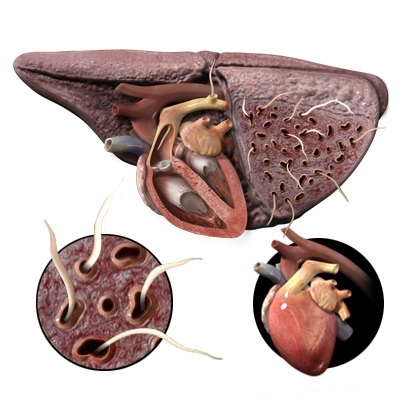Feline Heartworm Disease

When a mosquito infected with a blood-borne parasite named Dirofilaria immitis takes a blood meal from the pet, it transmits heartworm disease to the cats. Cats are resistant to heartworm disease as compared to dogs. The symptoms of the disease also differ in cats than dogs because cats are not the natural host for the parasite. Heartworm infection can be deadly as the symptoms are not very specific and involve several affected organs. The clinical signs of heartworm disease include coughing, vomiting, lethargy, loss of appetite, and weight loss. However, in case of acute illness, heartworms enter the pulmonary artery and obstruct the blood flow which leads to sudden death. The diagnosis of the disease is challenging due to the absence of specific clinical symptoms and a small number of worms that mature in the pet. Irrespective of the number of worms, the inflammation caused by these is usually severe. For the diagnosis, specialized blood tests e.g., heartworm antibody test, and heartworm antigen test are performed. Along with this, radiographs and cardiac ultrasounds are helpful in viewing the condition and function of the heart. For the treatment of heartworm, there are no drugs approved and it is difficult to eliminate heartworm safely. In some cases, the symptoms of the heartworm are treated while in others, the surgical removal of the heartworm is required which is recommended for the cats with severe symptoms and poor prognosis with medication. The safest method is to prevent the disease. It is recommended for cats to receive heartworm preventives for the prevention of this deadly disease.
